Fleurs du Mal Magazine


Or see the index
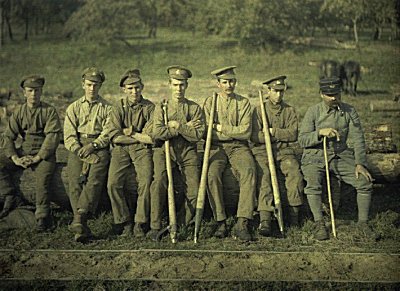
John McCrae
(1872 – 1918)
The Oldest Drama
“It fell on a day, that he went out to his father to the reapers.
And he said unto his father, My head, my head. And he said to a lad,
Carry him to his mother. And . . . he sat on her knees till noon,
and then died. And she went up, and laid him on the bed. . . .
And shut the door upon him and went out.”
Immortal story that no mother’s heart
Ev’n yet can read, nor feel the biting pain
That rent her soul! Immortal not by art
Which makes a long past sorrow sting again
Like grief of yesterday: but since it said
In simplest word the truth which all may see,
Where any mother sobs above her dead
And plays anew the silent tragedy.
John McCrae poetry
kempis.nl poetry magazine
More in: Archive C-D, McCrae, John
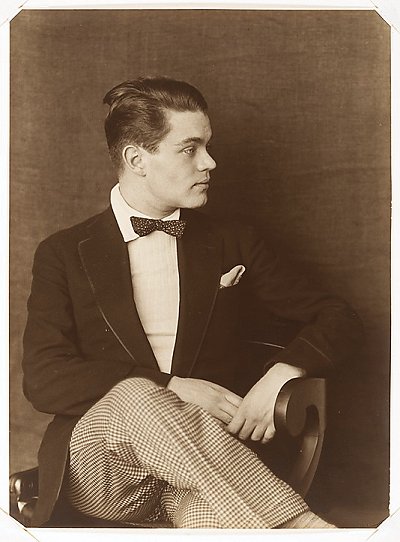
Renée Crevel
(1900-1935)
Elle ne suffit l’éloquence
Elle ne suffit pas l’éloquence.
Mon cœur ce soir se balance
Et glisse au fil d’une paupière
Lampion de misère
Qui n’éclaire pas ma nuit.
Homme noir mais non d’onyx
Homme couleur de dépit
Titubant par le marais des petites haines
Tu voudrais
Comme une alouette son miroir
Un soleil où mourir avec ta peine.
Tu cherches mais trop inquiet
Pour trouver ton Reposoir.
Rien ne brille
Ni les yeux, ni le fer, ni l’aimant anonyme
Qui libèrent de mille clous
Tes douleurs
Où l’essaim des mouches au vol boiteux
Des mouches qui n’ont qu’une aile
Allument de piètres étoiles de sang.
Jongleur
Jongleur de paroles
Tes mots s’écrasent contre les murs.
Ton angoisse –encore un ruban frivole–
Couronne
Un cerveau qui trop longtemps a joué au « pigeon vole ».
Les lettres du désespoir
Ce soir
Sont égales aux lettres des bonheurs d’autrefois.
Que dirai-je alors !
Que te dirai-je à toi
Frère né de mes pieds.
Sur un sol où tu ne vis que pour m’épier.
Trottoir que j’ai suivi
Pour son mensonge de granit.
J’ai oublié que là-bas était la mer
Et j’ai fui l’eau miroir d’étoiles
Pour chanter une main
Dans une autre main.
Fleuve vert
Enfance douce
Pitié pour l’homme qui passe
L’homme qui mord sa lèvre
Dans ses lèvres
Car il a peur d’oublier le goût de bouche.
Timonier brun, sous la toile bleue
La peau couler de cheveux
Holà ! beau voyageur
Tu allais vers la mer
Maintenant tu marches au ciel, un trou un hublot
Je suis le noyé des terres.
Dis qu’il n’est pas trop tard
O mon orgueil, pour jouer au phare.
Et sur le matelas des herbes tendres
Tombe en triangles de métal.
Mon cœur aura beau hurler son mal
Mon cœur j’en ferai des lanières
Des lanières que je saurai teindre
Ou tordre en chiffres
Plus définitifs
Que les œufs dans leurs coquilles
Et les momies dans leur robe d’or.
Et toi, mon corps, maudis les sens comme un malade ses béquilles.
1924
Renée Crevel poetry
kempis.nl poetry magazine
More in: Archive C-D, Crevel, Renée
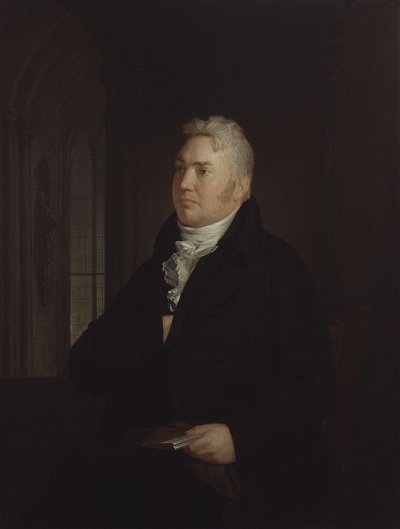
Samuel Taylor Coleridge
(1772-1834)
Frost at Midnight
The Frost performs its secret ministry,
Unhelped by any wind. The owlet’s cry
Came loud – and hark, again! loud as before.
The inmates of my cottage, all at rest,
Have left me to that solitude, which suits
Abstruser musings: save that at my side
My cradled infant slumbers peacefully.
‘Tis calm indeed! so calm, that it disturbs
And vexes meditation with its strange
And extreme silentness. Sea, hill, and wood,
This populous village! Sea, and hill, and wood,
With all the numberless goings-on of life,
Inaudible as dreams! the thin blue flame
Lies on my low-burnt fire, and quivers not;
Only that film, which fluttered on the grate,
Still flutters there, the sole unquiet thing.
Methinks its motion in this hush of nature
Gives it dim sympathies with me who live,
Making it a companionable form,
Whose puny flaps and freaks the idling Spirit
By its own moods interprets, everywhere
Echo or mirror seeking of itself,
And makes a toy of Thought.
But O! how oft,
How oft at school, with most believing mind,
Presageful, have I gazed upon the bars,
To watch that fluttering stranger! and as oft
With unclosed lids, already had I dreamt
Of my sweet birthplace, and the old church tower,
Whose bells, the poor man’s only music, rang
From morn to evening, all the hot fair-day,
So sweetly, that they stirred and haunted me
With a wild pleasure, falling on mine ear
Most like articulate sounds of things to come!
So gazed I, till the soothing things, I dreamt,
Lulled me to sleep, and sleep prolonged my dreams!
And so I brooded all the following morn,
Awed by the stern preceptor’s face, mine eye
Fixed with mock study on my swimming book:
Save if the door half opened, and I snatched
A hasty glance, and still my heart leaped up,
For still I hoped to see the stranger’s face,
Townsman, or aunt, or sister more beloved,
My playmate when we both were clothed alike!
Dear Babe, that sleepest cradled by my side,
Whose gentle breathings, heard in this deep calm,
Fill up the interspersèd vacancies
And momentary pauses of the thought!
My babe so beautiful! it thrills my heart
With tender gladness, thus to look at thee,
And think that thou shalt learn far other lore,
And in far other scenes! For I was reared
In the great city, pent ‘mid cloisters dim,
And saw nought lovely but the sky and stars.
But thou, my babe! shalt wander like a breeze
By lakes and sandy shores, beneath the crags
Of ancient mountain, and beneath the clouds,
Which image in their bulk both lakes and shores
And mountain crags: so shalt thou see and hear
The lovely shapes and sounds intelligible
Of that eternal language, which thy God
Utters, who from eternity doth teach
Himself in all, and all things in himself.
Great universal Teacher! he shall mold
Thy spirit, and by giving make it ask.
Therefore all seasons shall be sweet to thee,
Whether the summer clothe the general earth
With greenness, or the redbreast sit and sing
Betwixt the tufts of snow on the bare branch
Of mossy apple tree, while the nigh thatch
Smokes in the sun-thaw; whether the eave-drops fall
Heard only in the trances of the blast,
Or if the secret ministry of frost
Shall hang them up in silent icicles,
Quietly shining to the quiet Moon.
1798
Samuel Taylor Coleridge
Vorst te middernacht
De vorst werkt stil aan zijn geheime taak,
Geen wind die daarbij helpt. Het uiltje gaf
Zijn luide roep – en hoor, weer! even luid.
Alle bewoners van mijn stulpje slapen nu,
En bieden mij afzondering, die past
Bij diepergaand gepeins: behalve dan
Dat naast mij kalm mijn wiegekindje rust.
Hoe vredig! Zo zeer, dat ‘t bezinning stoort
En tegenwerkt door buitensporige
En vreemde stilligheid. Zee, heuvel, bos,
Dit volk-rijk dorp! Zee, heuvel, bos,
Met al die grote drukte van ‘t bestaan,
Onhoorbaar als een droom! De dunne vlam
Dekt blauw mijn smeulend vuur, en wappert niet;
Maar ‘n film, die trillend op het rooster lag,
Trilt nu nog steeds, en stoort de rust alleen.
Medunkt die onrust in de stilte der natuur
Geeft het wat meegevoel met mij die leeft,
Waardoor zich ‘n deelgenootschap vormt,
En, sluimerend, de geest ‘t zwak fladderen
Door de eigen stemmingen verklaart, op zoek
Naar echo’s of een spiegel van zichzelf,
En spel maakt van gepeins.
Maar O! hoe vaak,
Hoe vaak op school, in goedgelovigheid,
Staard’ ik met voorgevoel de spijlen aan,
En zag die fladderende vreemde! * Vaak
Ook had ik, d’ ogen open, zoet gedroomd
Van waar mijn wieg stond, van de kerkklok,
De enige muziek der arme man, die klonk
Van vroeg tot laat, de ganse, warme dag,
Zo lieflijk, dat het mij ontroerde en greep
Met wild plezier, en in mijn oren zonk
Als ‘t klinkklaar luiden van wat komen zou!
Zo staarde ik, tot ik kalmerend door die droom,
In slaap viel, en die droom weer langer werd!
Zo mijmerde ik de dag daarop nog door.
Mijn oog, bevreesd voor meester’s strenge blik,
Kleefde al spijbelend aan mijn drijvend boek:
Behalve als bij open deur, ik snel
Een blik wierp, en mijn hart weer opsprong,
Want steeds nog keek ik naar de vreemde uit,
Stedeling, tante, zuster meer geliefd,
Mijn makker, nog gelijk gekleed als ik!
Lief kindje, naast mij slapend in je wieg,
Wiens zachte adem, hoorbaar in de rust,
De leemtes en de korte pauzes soms
Verspreid in de gedachtenstromen vult!
Mijn kind, zo schoon! Het schenkt mijn hart
Een tere vreugd, als ik zo naar je kijk,
En weet dat jij veel, anders leren zult,
En in heel ander landschap ook! Want ik
Groeide gekloosterd als een stadskind op,
En zag aan schoons slechts sterren en de lucht.
Maar jij, mijn kind, zult zwerven als een bries
Aan meer en oever, onder aan de kloof
Van ‘n oude berg, en onder ‘t wolkendek,
Dat in zijn opbouw oever, meer, en kloof
Verbeeldt: zo zul je zien en horen ook
De liefelijke vormen en bevattelijke klank
Van die onsterfelijke taal, door God
Gesproken, die zich eeuwig onderwijst
In ‘t al, en alle dingen in Zichzelf.
De grote algehele Leraar! Hij boetseert
Je geest, and zorgt door geven dat die vraagt.
Daarom zal elk seizoen je dierbaar zijn,
Of nu de zomer heel de aarde kleedt
In ‘t groen, of ‘t roodborstje zit en zingt
Tussen de plekjes sneeuw op ‘n kale tak
Van een bemoste appelboom, terwijl
Het rietdak dampt in zonnedooi; of nu
Dakdruppels spetteren bij geluwde wind,
Of dat, door de geheime taak der vorst,
Ze onhoorbaar neerhangen als ijspegels,
In stilte schijnend naar de stille maan.
* Vreemde: de roetfilm die boven het rooster zweeft wordt “overal in het land vreemde genoemd en kondigt de komst van een afwezige bekende aan” (aantekening van Coleridge)
Vertaling Cornelis W. Schoneveld
Uit: Bestorm mijn hart, de beste Engelse gedichten uit de 16e-19e eeuw gekozen en vertaald door Cornelis W. Schoneveld, tweetalige editie. Rainbow Essentials no. 55, Uitgeverij Maarten Muntinga, Amsterdam, 2008, 296 pp, € 9,95 ISBN: 9789041740588
Kempis.nl poetry magazine
More in: Archive C-D, Coleridge, Coleridge, Samuel Taylor
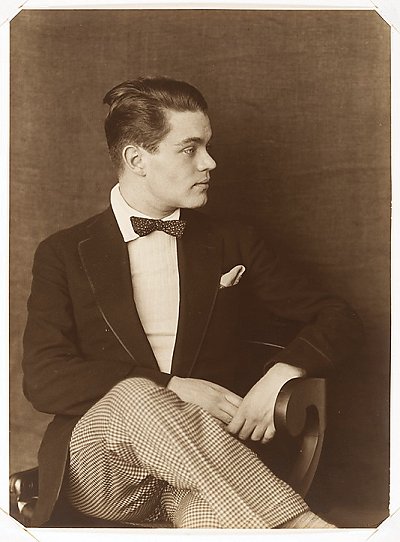
Renée Crevel
(1900-1935)
Autobiographie
Né le 10 août 1900 à Paris de parents parisiens, ce qui lui permet d’avoir l’air slave. Lycée, Sorbonne, Faculté de Droit, Service militaire jusqu’à la fin de 1923, d’où l’impression de ne vivre vraiment que depuis peu de mois. N’est allé ni au Thibet ni au Groenland, ni même en Amérique, mais les voyages qui n’ont pas eu lieu en surface on a tenté de les faire en profondeur. Ainsi, peut se vanter de bien connaître certaines rues et leurs hôtels de jour et de nuit.
A horreur de tous les esthétismes, qu’il s’agisse de celui d’Oxford et de pantalons larges, de celui des remords de cinéma avec leurs maisons de guingois, de celui des nègres et du jazz, des bals musettes et des pianos mécaniques…, etc. Voudrait bien pour des romans futurs retrouver des personnages aussi nus, aussi vivants que les couteaux et fourchettes qui figuraient les hommes et les femmes dans les histoires destinées à demeurer inédites qu’il se racontait enfant.
Avait commencé des recherches pour une thèse de doctorat ès lettres sur Diderot romancier , quand, avec Marcel Arland, Jacques Baron, Georges Limbour, Max Morise, Roger Vitrac, il fonda une revue « Aventure » qui lui valut d’oublier le XVIII siècle pour le XX. C’est alors qu’il connut Louis Aragon, André Breton, Paul Eluard, Philippe Soupault, Tristan Tzara, et un jour, devant un tableau de Giorgio de Chirico, il eut enfin la vision d’un monde nouveau. Il négligea définitivement le vieux grenier logico-réaliste, comprenant qu’il était lâche de se confiner dans une médiocrité raisonneuse, que, chez les vrais poètes, il ne trouvait ni jeux ni mots, ni jeux d’images, mais qu’il les aimait –et parmi eux tout particulièrement Rimbaud et Lautréamont– pour leur pouvoir libérateur.
A participé aux premières expériences hypnotiques d’où André Breton tira des arguments pour son Manifeste du Surréalisme . A donc pu constater de lui-même que le Surréalisme était le moins littéraire et le plus désintéressé des mouvements, et persuadé qu’il n’est pas de vie morale possible pour qui n’est point docile aux voies souterraines ou se refuse à reconnaître la réalité des forces obscures, a décidé une fois pour toutes, et au risque de passer pour un Don Quichotte, un arriviste ou un fou, d’essayer tant par ses actes que par ses écrits, d’écarter les barrières qui limitent l’homme et ne le soutiennent pas.
Son premier roman Détours (N.R.F/ 1924), une œuvre, un portrait (épuisé), était une promenade préliminaire où les critiques, et en particulier Benjamin Vrémieux, Edmond Jaloux, Albert Thibaudet, on reconnu des attitudes, des flâneries et des rages caractéristiques du jeune homme actuel. Mon corps et moi (1925), roman dont le héros porte en soi toutes ses aventures et où les gestes, les personnages ne sont que des prétextes, est un panorama intérieur.
1926
Biographie de René Crevel
Un des quatre enfants d’une famille bourgeoise, avec un père imprimeur et une mère austère, René Crevel apprend le piano et fréquente le lycée Janson-de-Sailly. L’événement traumatisant, quand il a quatorze ans, est le suicide de son père par pendaison. René Crevel s’inscrit à la Sorbonne en droit et en lettres, mais, aux cours, préfère lire et discuter avec des gens liés aux mouvances littéraires d’avant-garde. En 1921, il rencontre André Breton et rejoint les surréalistes, les initiant aux expériences de sommeil hypnotique, avant de rejoindre Tzara et le Dadaïsme pour renouer en 1929 avec les surréalistes. Dans ses trois premiers romans, ‘Détours’ (1924), ‘Mon corps et moi’ (1925) et ‘La Mort difficile’ (1926), René Crevel nous livre, sur le ton de la dérision et de l’humour noir, le panorama intérieur de ses angoisses, le suicide de son père et la haine de sa mère. Il poursuivra cette exploration des profondeurs de son âme par la psychanalyse. Avec ‘Babylone’ (1927) et ‘Etes-vous fous ?’ (1929), il tente de rendre compte des processus inconscients, recomposant cet état de rêve par la prédominance des analogies, d’affabulations et de personnages arbitraires, réconciliant ainsi roman et surréalisme. Il est également l’auteur d’essais théoriques sur le surréalisme, rassemblés dans ‘L’ Esprit contre la raison’ (1927). René Crevel met fin à ses jours à 35 ans.
Renée Crevel poetry & prose
fleursdumal.nl magazine
More in: Archive C-D, Crevel, Renée, SURREALISM, Surrealisme
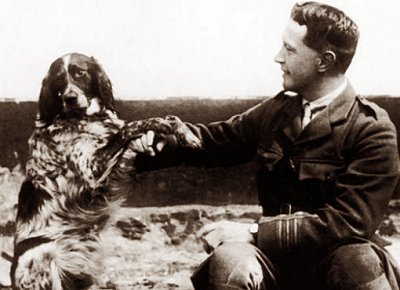
John McCrae
(1872 – 1918)
Anarchy
I saw a city filled with lust and shame,
Where men, like wolves, slunk through the grim half-light;
And sudden, in the midst of it, there came
One who spoke boldly for the cause of Right.
And speaking, fell before that brutish race
Like some poor wren that shrieking eagles tear,
While brute Dishonour, with her bloodless face
Stood by and smote his lips that moved in prayer.
“Speak not of God! In centuries that word
Hath not been uttered! Our own king are we.”
And God stretched forth his finger as He heard
And o’er it cast a thousand leagues of sea.
John McCrae poetry
kempis.nl poetry magazine
More in: Archive C-D, McCrae, John
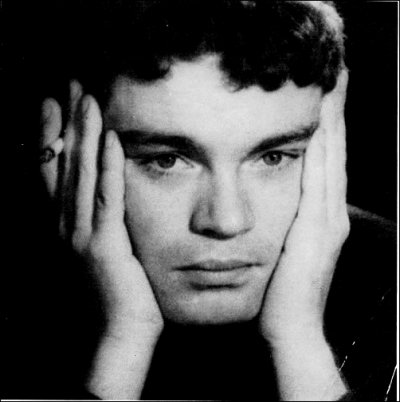
Renée Crevel
(1900-1935)
Métro
Les nègres de mon enfance
tachaient bien le ciel de France
mais leur flûte en acajou
savait un air drôle et doux.
Or les nègres ont perdu
jusqu’à l’orgueil de couleur.
Et de marine vêtus
ils croient encore au bonheur.
Ces enfants des pays chauds
aujourd’hui sont devenus
chefs de gare du métro.
1924
Renée Crevel poetry
kempis.nl poetry magazine
More in: Archive C-D, Crevel, Renée
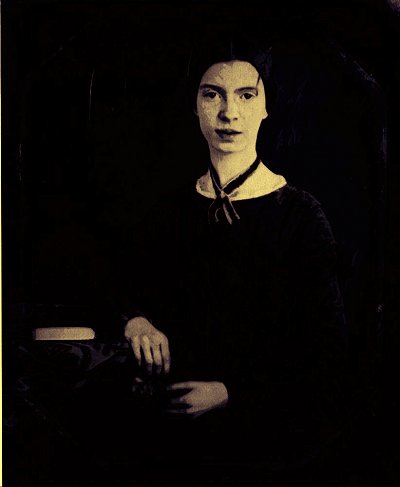
Emily Dickinson
(1830-1886)
The Last Night That She Lived
The last night that she lived,
It was a common night,
Except the dying; this to us
Made nature different.
We noticed smallest things, —
Things overlooked before,
By this great light upon our minds
Italicized, as ‘t were.
That others could exist
While she must finish quite,
A jealousy for her arose
So nearly infinite.
We waited while she passed;
It was a narrow time,
Too jostled were our souls to speak,
At length the notice came.
She mentioned, and forgot;
Then lightly as a reed
Bent to the water, shivered scarce,
Consented, and was dead.
And we, we placed the hair,
And drew the head erect;
And then an awful leisure was,
Our faith to regulate.

Emily Dickinson poetry
kempis.nl poetry magazine
More in: Archive C-D, Dickinson, Emily

Emily Dickinson
(1830-1886)
Death Is a Dialogue
Death is a dialogue between
The spirit and the dust.
“Dissolve,” says Death. The Spirit, “Sir,
I have another trust.”
Death doubts it, argues from the ground.
The Spirit turns away,
Just laying off, for evidence,
An overcoat of clay.

Emily Dickinson poetry
kempis.nl poetry magazine
More in: Archive C-D, Dickinson, Emily
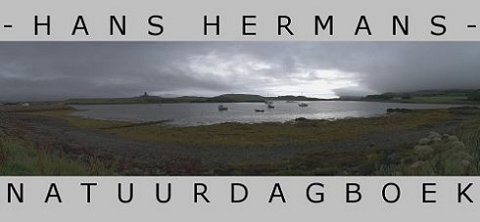
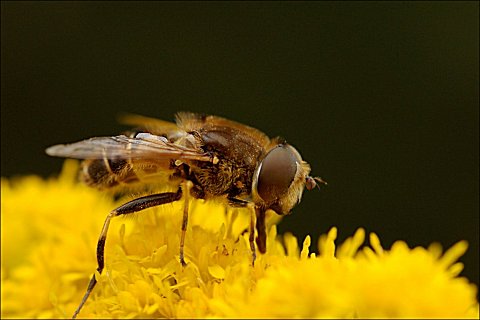
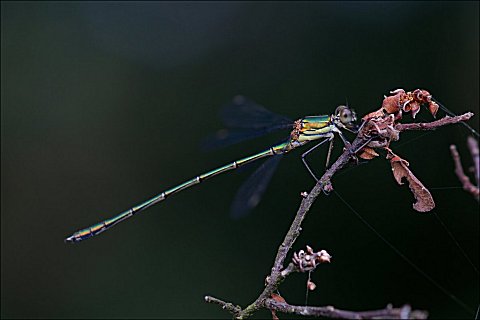
May-Flower
Pink, small, and punctual,
Aromatic, low,
Covert in April,
Candid in May,
Dear to the moss,
Known by the knoll,
Next to the robin
In every human soul.
Bold little beauty,
Bedecked with thee,
Nature forswears
Antiquity.
Emily Dickinson
(1830-1886)
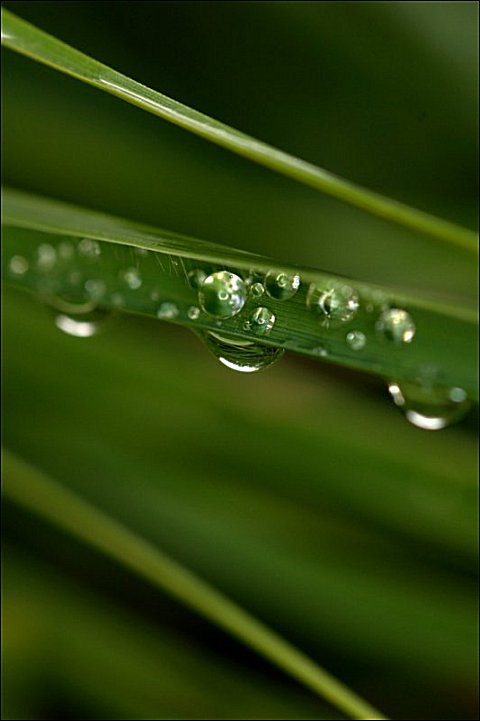
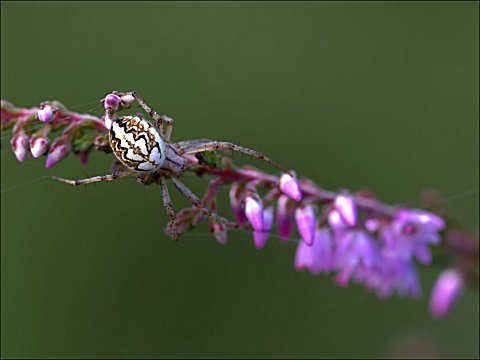
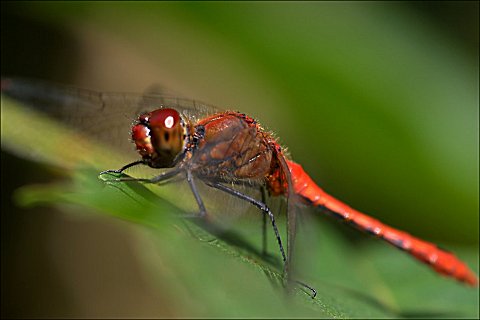
Hans Hermans Natuurdagboek
Poem: Emily Dickinson
Photos: Hans Hermans
June 2011
kempis.nl poetry magazine
More in: Archive C-D, Dickinson, Emily, Hans Hermans Photos
.jpg)



john tiong chunghoo
Vietnam Travel Haiku
Hanoi Municipal Water puppet theatre
water puppet theatre
our heart swings and swirls
with the water puppets
water puppet theatre
water gives life
to puppets
fluider than water
water puppets
Hanoi water puppet theatre
water puppet theatre
the water dances
with puppets
water puppet theatre
children ask to splash
in the water
water puppet theatre
streaming with life
puppets and water
water puppet theatre
a sea of legends
twirls and swirls
water puppet theatre
the water refuses
to die down
water puppet theatre
water keeps inviting
the puppets
water puppet theatre
audience mom plays with child
as if he is too a puppet
The water puppet theatre near Hoan Kiem Lake in Hanoi is worth every cent a watch. The show starts with traditional music performance after which puppets in the form of dragons, phoenixes, female dancers, fishes among others take their turns to dance, jump, hop, twirl and swirl over the water as they act out the legends of Vietnam. The water seems to give so much life to the wooden puppets. It swings to the music and is the soul of the whole performance besides of course the pupeteers behind the bamboo screens also over the water.


hans hermans nature and travel diary – february 2011
john tiong chunghoo poetry
kempis.nl poetry magazine
More in: Archive C-D, Hans Hermans Photos
.jpg)
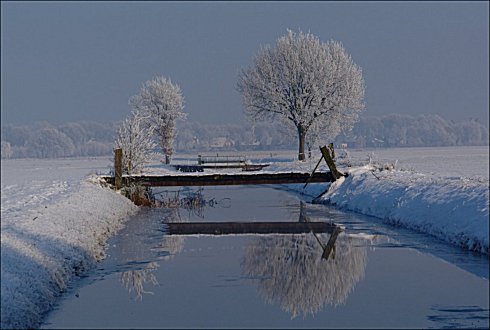
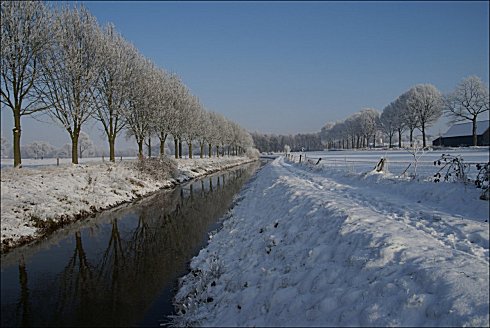
Adelbert von Chamisso
(1781-1838)
Nacht und Winter
Von des Nordes kaltem Wehen
Wird der Schnee dahergetrieben,
Der die dunkle Erde decket;
Dunkle Wolken zieh’n am Himmel,
Und es flimmern keine Sterne,
Nur der Schnee im Dunkel schimmert.
Herb’ und kalt der Wind sich reget,
Schaurig stöhnt er in die Stille;
Tief hat sich die Nacht gesenket.
Wie sie ruh’n auf dem Gefilde,
Ruh’n mir in der tiefsten Seele
Dunkle Nacht und herber Winter.
Herb’ und kalt der Wind sich reget,
Dunkle Wolken zieh’n am Himmel,
Tief hat sich die Nacht gesenket.
Nicht der Freude Kränze zieren
Mir das Haupt im jungen Lenze,
Und erheitern meine Stirne:
Denn am Morgen meines Lebens,
Liebend und begehrend Liebe,
Wandl’ ich einsam in der Fremde.
Wo das Sehnen meiner Liebe,
Wo das heiße muß, verschmähet,
Tief im Herzen sich verschließen.
Herb’ und kalt der Wind sich reget.
Dunkle Wolken zieh’n am Himmel,
Und es flimmern keine Sterne.
Wie sie ruh’n auf dem Gefilde,
Ruh’n mir in der tiefsten Seele
Dunkle Nacht und herber Winter.
Leise hallen aus der Ferne
Töne, die den Tag verkünden. –
Wird der Tag denn sich erhellen?
Freudebringend dem Gefilde
Wird er strahlen, Nacht entschweben,
Herber Winter auch entfliehen,
Und des Jahres Kreis sich wenden,
Und der junge Lenz in Liebe
Nahen der verjüngten Erde.
Mir nur, mir nur ew’ger Winter,
Ew’ge Nacht, und Schmerz und Thränen,
Kein Tag, keines Sternes Flimmer!
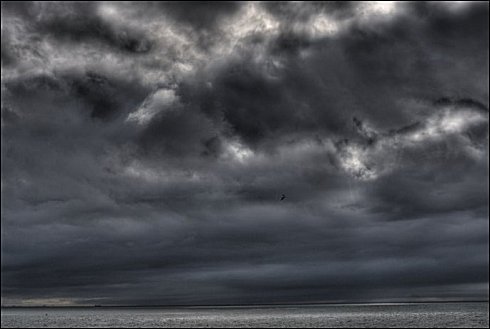
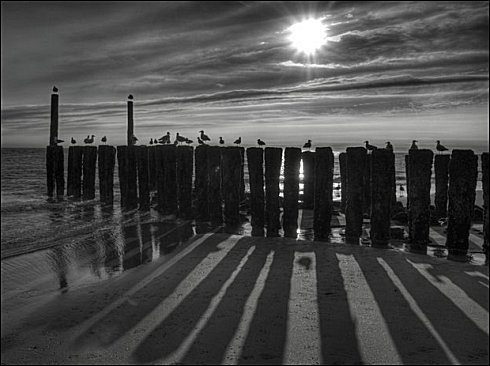
Photos ©Hans Hermans – Natuurdagboek Januari 2011
kempis.nl poetry magazine
More in: Archive C-D, Hans Hermans Photos, MUSEUM OF NATURAL HISTORY - department of ravens & crows, birds of prey, riding a zebra, spring, summer, autumn, winter
.jpg)
Gabriele D’Annunzio
(1863-1938)
Filastrocca di Carnevale
Carnevale vecchio e pazzo
s’è venduto il materasso
per comprare pane e vino
tarallucci e cotechino.
E mangiando a crepapelle
la montagna di frittelle
gli è cresciuto un gran pancione
che somiglia ad un pallone.
Beve, beve all’improvviso
gli diventa rosso il viso
poi gli scoppia anche la pancia
mentre ancora mangia, mangia.
Così muore Carnevale
e gli fanno il funerale.
Gabriele D’Annunzio poetry
fleursdumal.nl magazine
More in: Archive A-B, Archive C-D, D'Annunzio, Gabriele
Thank you for reading Fleurs du Mal - magazine for art & literature